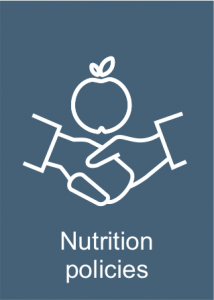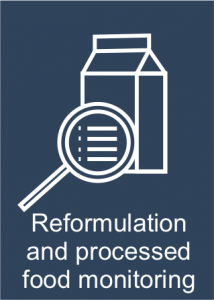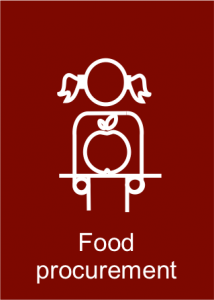
About Us
Best-ReMaP is a Europe-wide Joint Action that seeks to contribute to an improved quality of food supplied to citizens of Europe by facilitating the exchange and testing of good practices concerning:
(1) the monitoring and analysis of how the food that people consume changes at the European and national level,
(2) the regulations on the marketing of food and beverages to children,
(3) and the procurement of food by public bodies for educational institutions, social care facilities, etc.
To achieve these goals, during its lifetime (2020-2023), the Best-ReMaP project will contribute to European initiatives that seek to change the current food environment available for Europeans by:
- providing Member States assistance to produce a snapshot of food currently offered to consumers at national markets and with this food snapshot methodology offer an opportunity to monitor the impact of national regulations aimed at decreasing the salt, sugar and fat contents of processed food;
- creating the Food Information Database to ensure the sustainability of data collection on food reformulation (i.e. changing and regulating the food composition that can be offered on the market) at the EU and national levels and of monitoring trends in food reformulation;
- reducing the impact of harmful marketing of food to children in the EU by considering options to extend an existing Scandinavian regulation model across the EU Member States;
- and improving the quality of menus in the kitchens of public institutions by ensuring a more professional and principled procurement procedure;
Best-ReMaP will build on the networks of stakeholders in the field of nutrition at national and EU level to organise workshops and conferences. Here, health professionals and policy makers can discuss and share solutions to implement good practices developed by the specialised working groups of the project.
Who is involved?
Best ReMaP consists of 7 “Work Packages” (WP), i.e. pan-European teams that work towards bringing the project’s goals to fruition.
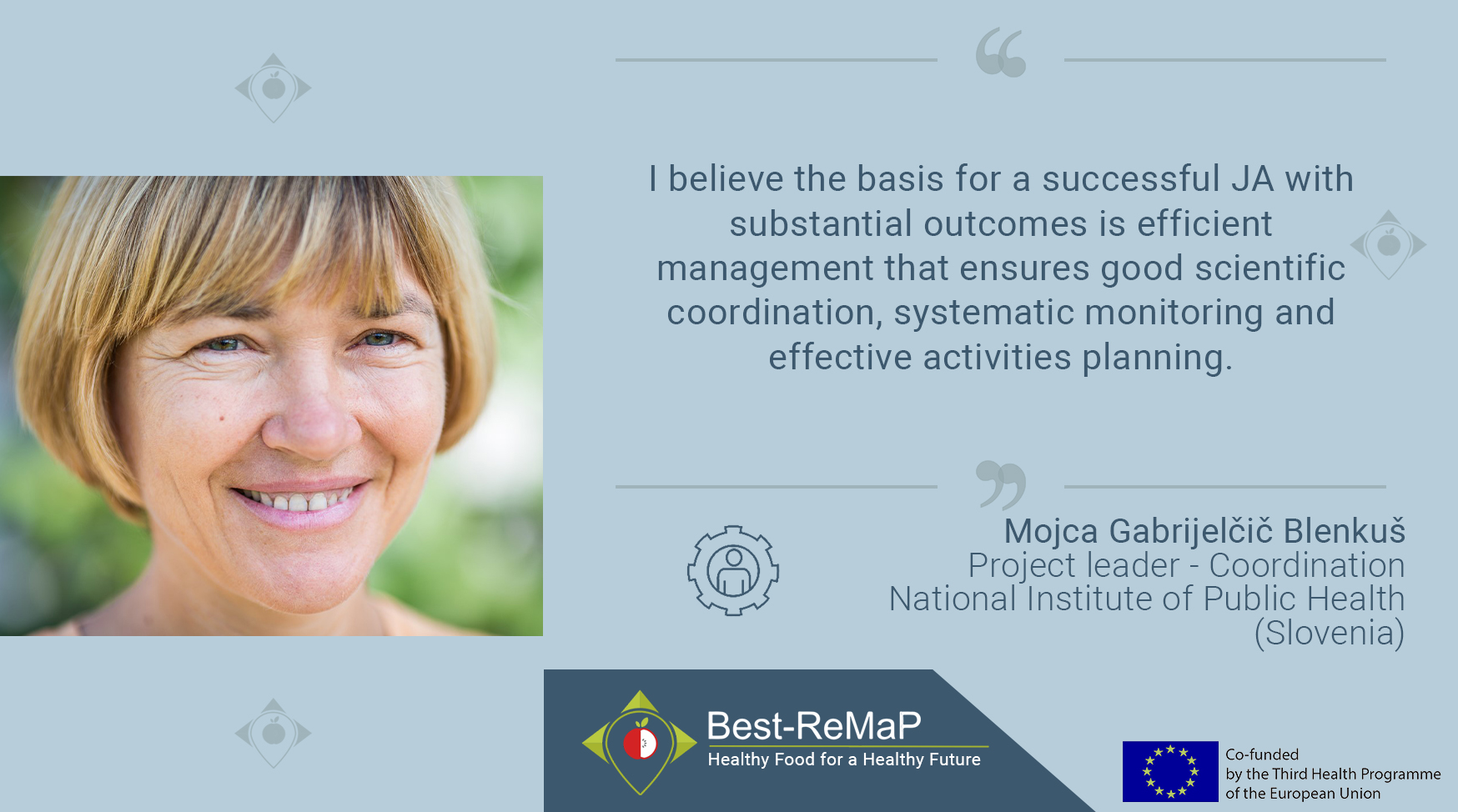
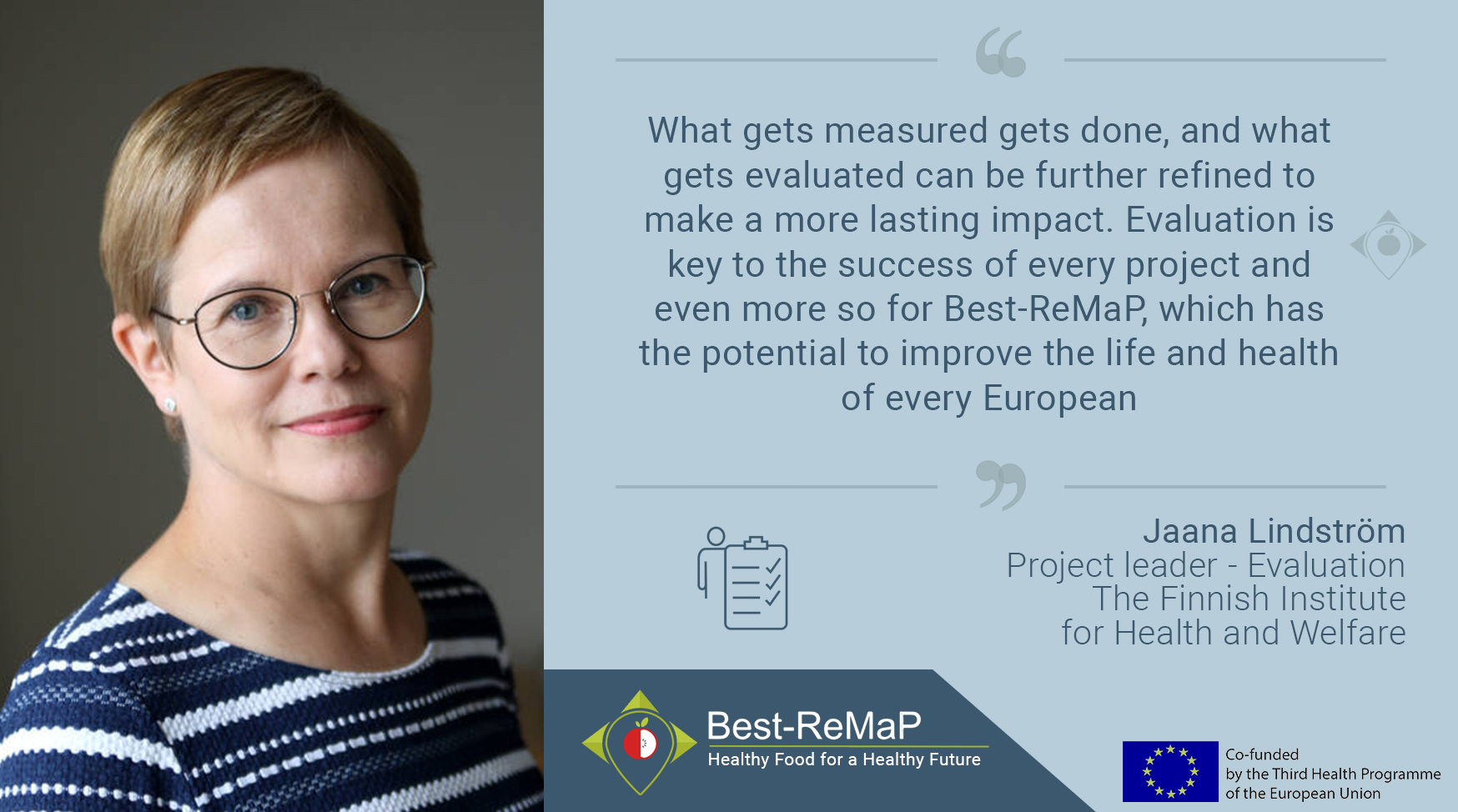
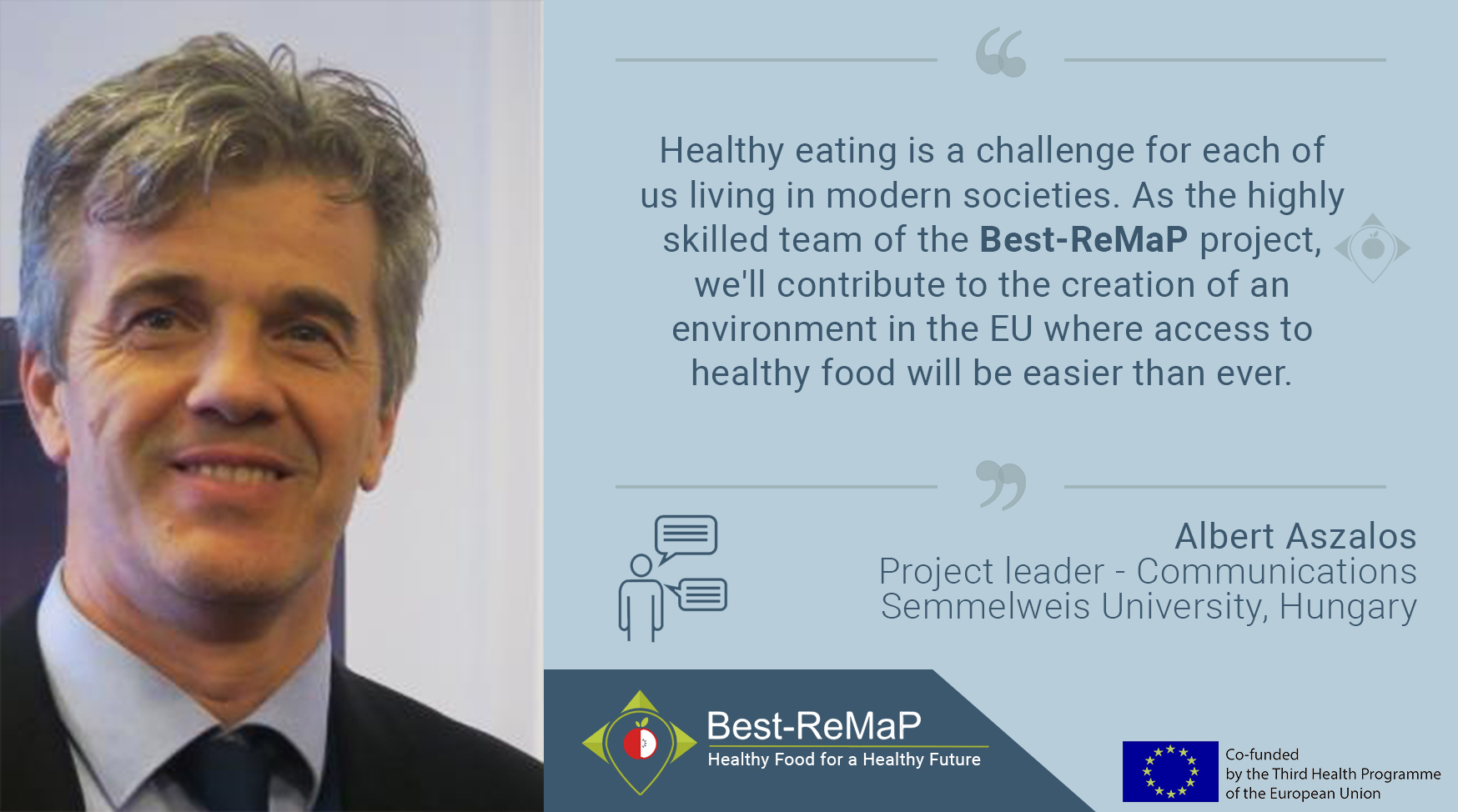
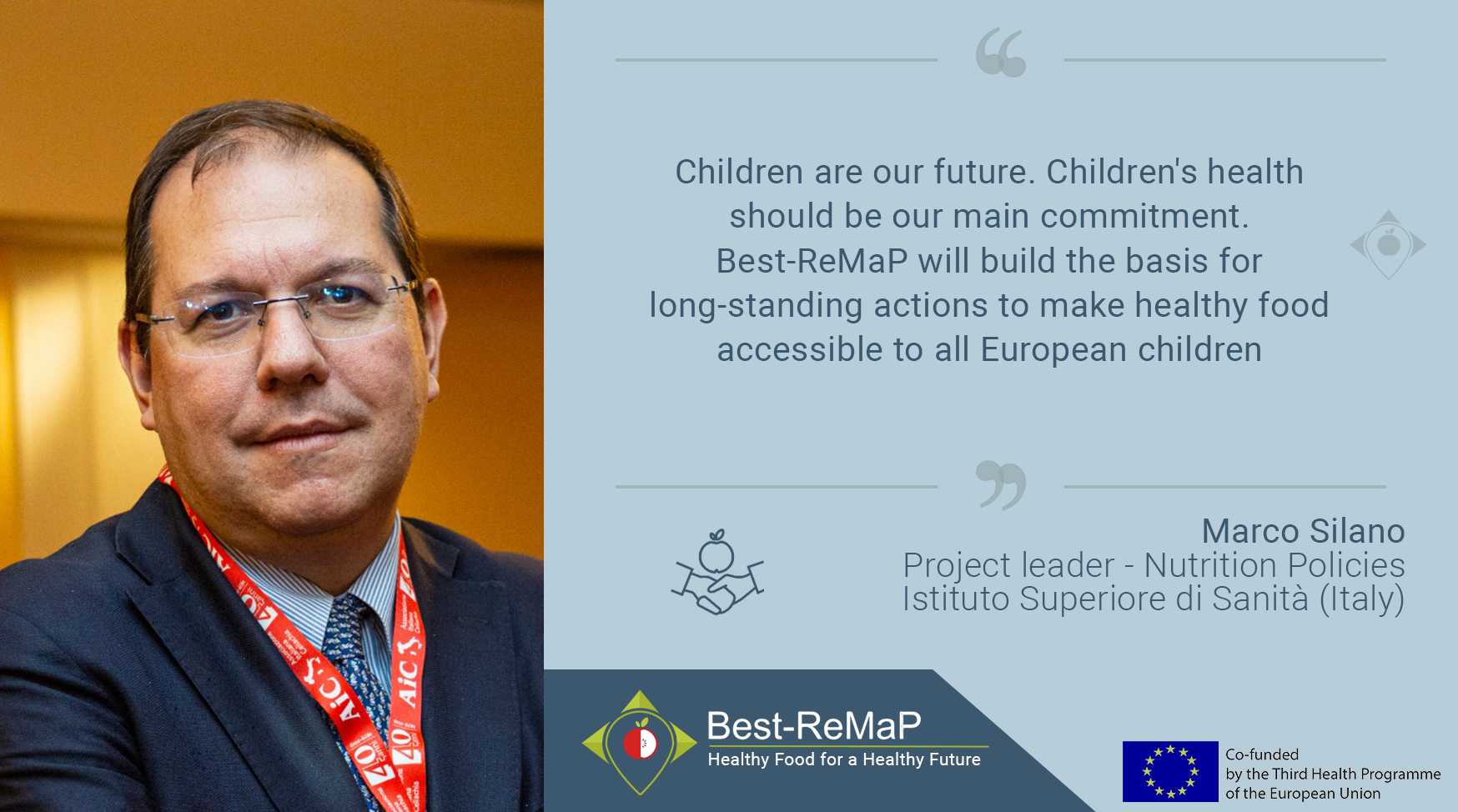
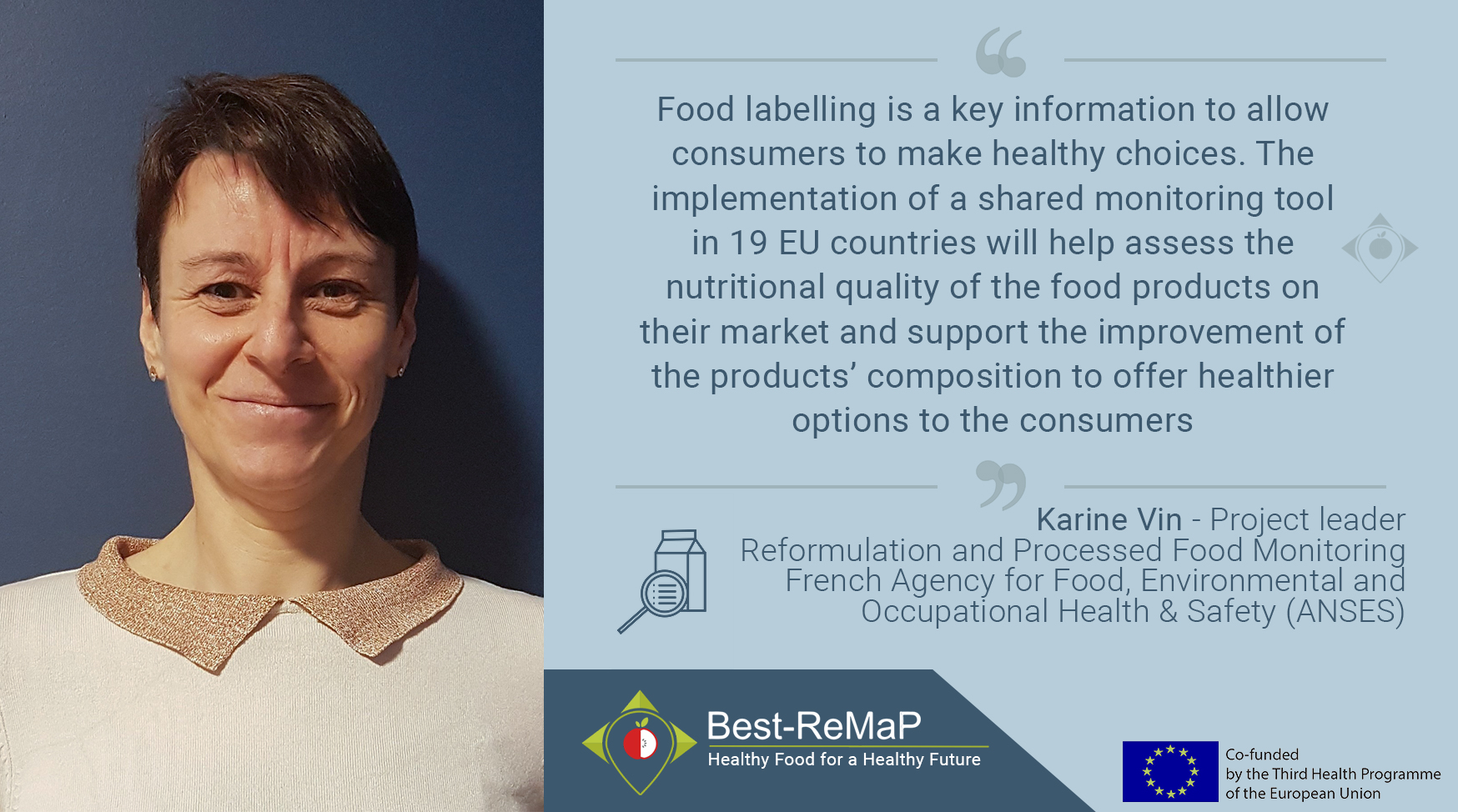
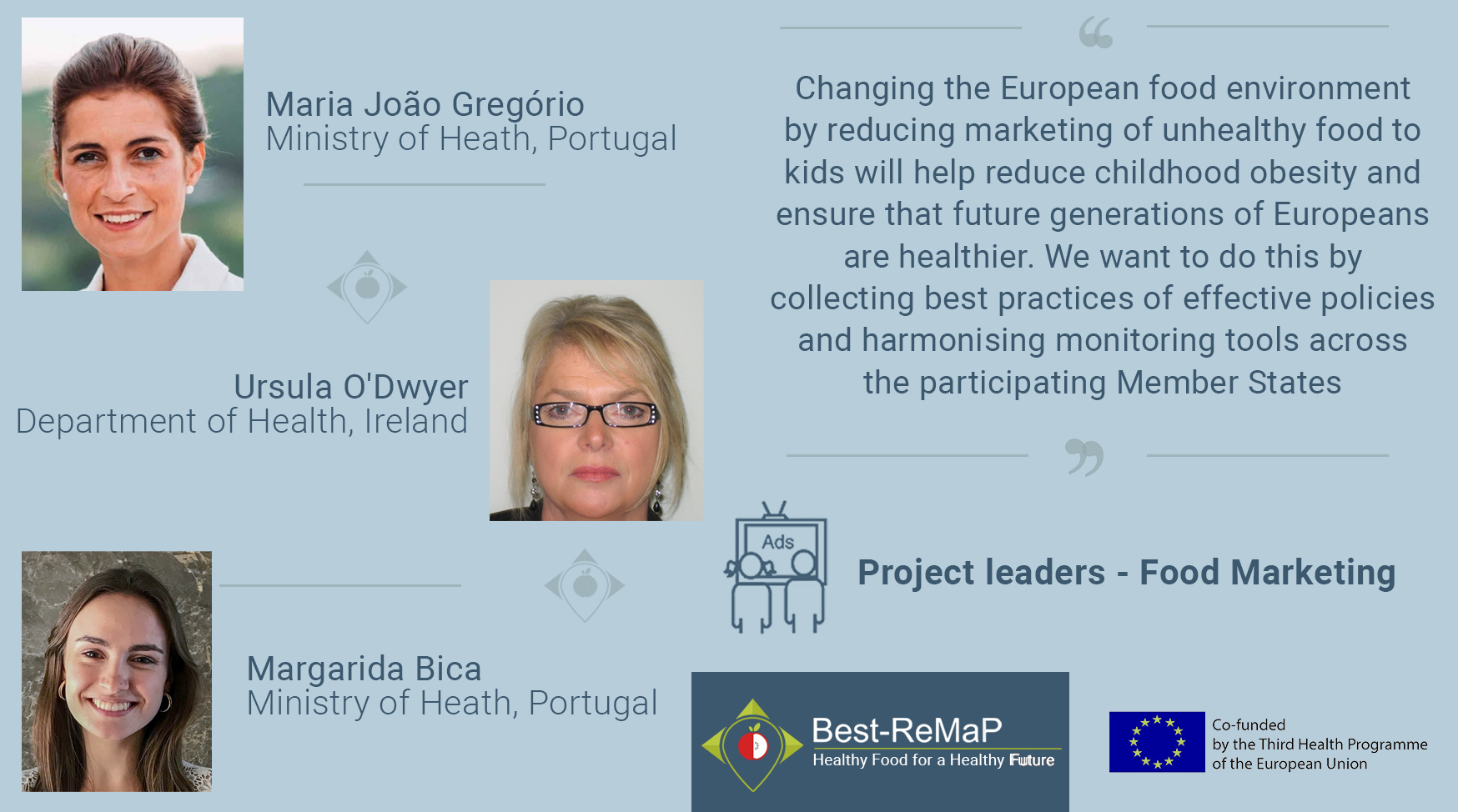
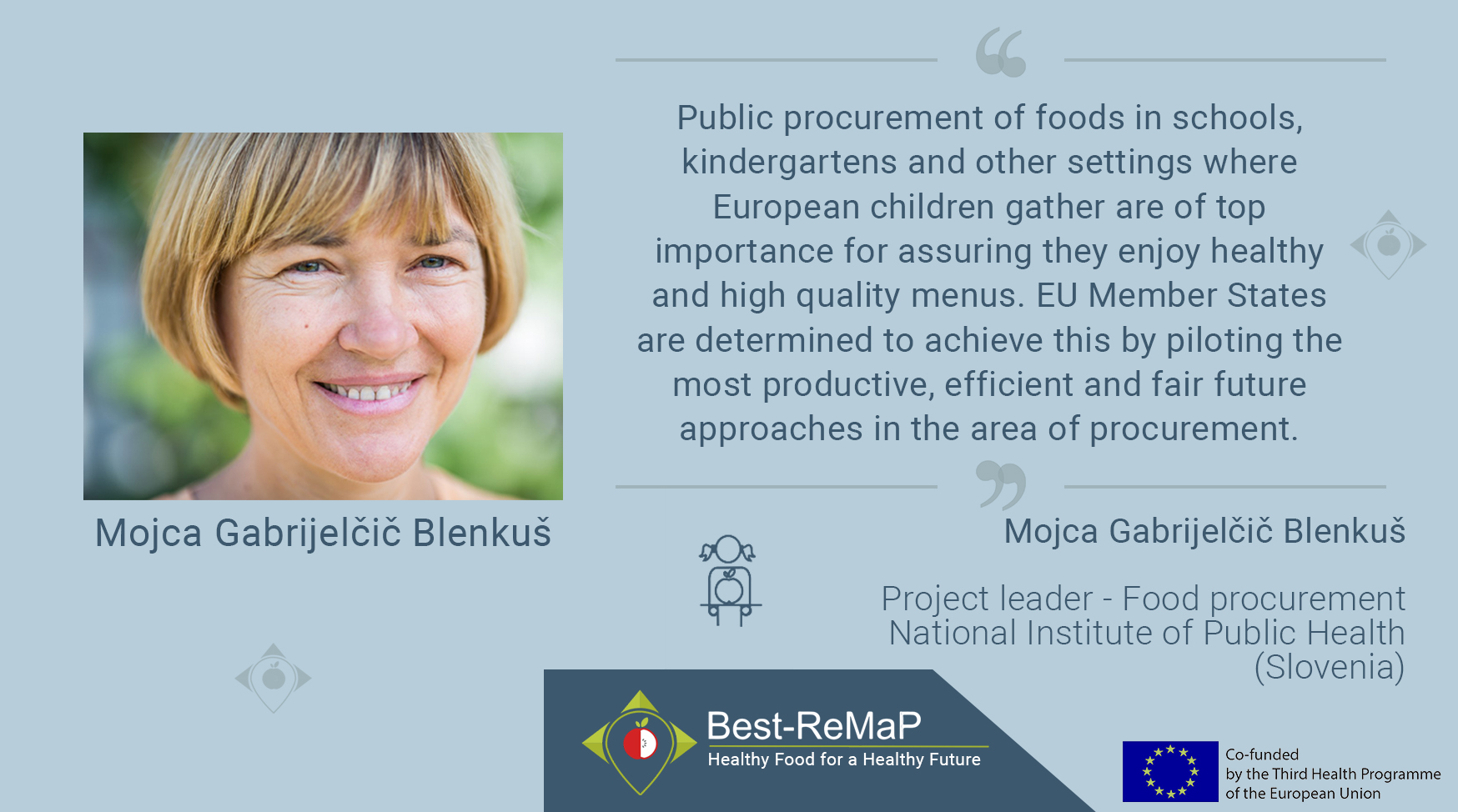
List of partners
- The National Institute of Public Health, Slovenia
- The Federal Ministry Republic of Labour, Social Affairs, Health and Consumer Protection, Austria
- The Austrian Agency for Health and Food Safety
- Austrian National Public Health Institute
- SCIENSANO, Belgium
- The Ministry of Civil Affairs of Bosnia and Herzegovina
- Institute of Public Health of Federation of Bosnia and Herzegovina
- Public Health Institute of Republic of Srpska
- The National Centre of Public Health and Analyses, Bulgaria
- Croatian Institute of Public Health
- Ministry of Health, Cyprus
- The Danish Veterinary and Food Administration
- Copenhagen Municipality
- Ministry of Social Affairs of Estonia
- The National Institute for Health Development, Estonia
- The Finish Institute for Health and Welfare
- French Agency for Food, Environmental and Occupational Health Safety
- Santé publique France
- Ministry of Health of France
- Max Rubner-Institut, Federal Research Institute of Nutrition and Food, Germany
- Institute of Child Health, Greece
- Semmelweis University, Hungary
- The National Institute of Pharmacy and Nutrition, Hungary
- Department of Health, Ireland
- The Food Safety Authority, Ireland
- The Centre for Health & Diet Research, Ireland
- Istituto Superiore di Sanita’, Italy
- The Centre for Disease Prevention and Control, Latvia
- Ministry of Health of Lithuania
- Public Health Regulation Department, Ministry for Health, Malta
- The National Institute for Public Health and the Environment, Netherlands
- The Medical University of Silesia, Poland
- Directorate-General of Health, Portugal
- The Faculty of Nutrition and Food Sciences, Portugal
- The National Institute of Public Health, Romania
- Institute of Public Health of Serbia “dr Milan Jovanović Batut”, Serbia
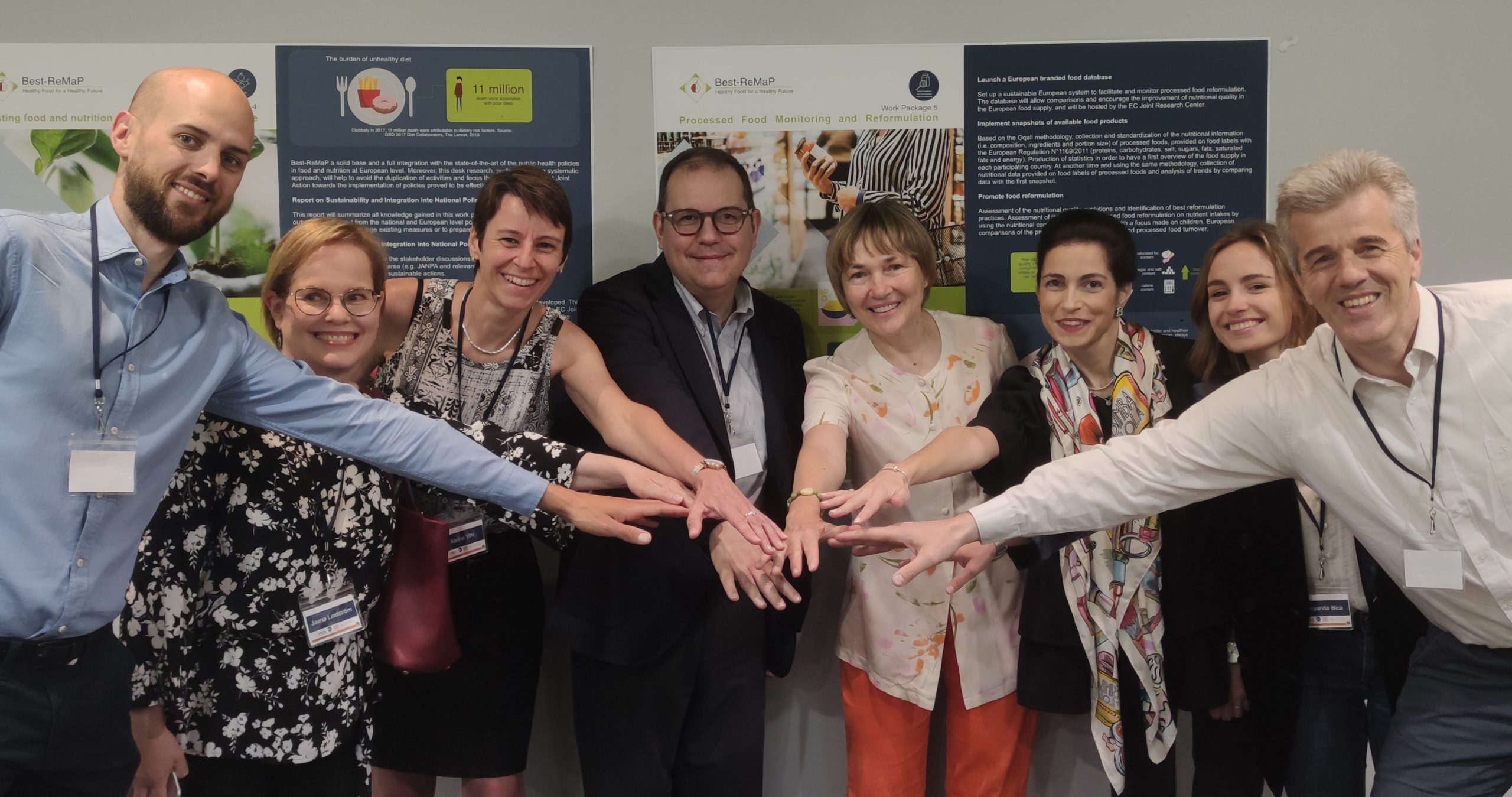

The content of this website represents the views of the author only and is his/her sole responsibility; it cannot be considered to reflect the views of the European Commission and/or the European Health and Digital Executive Agency (HaDEA) or any other body of the European Union. The European Commission and the Agency do not accept any responsibility for use that may be made of the information it contains.




